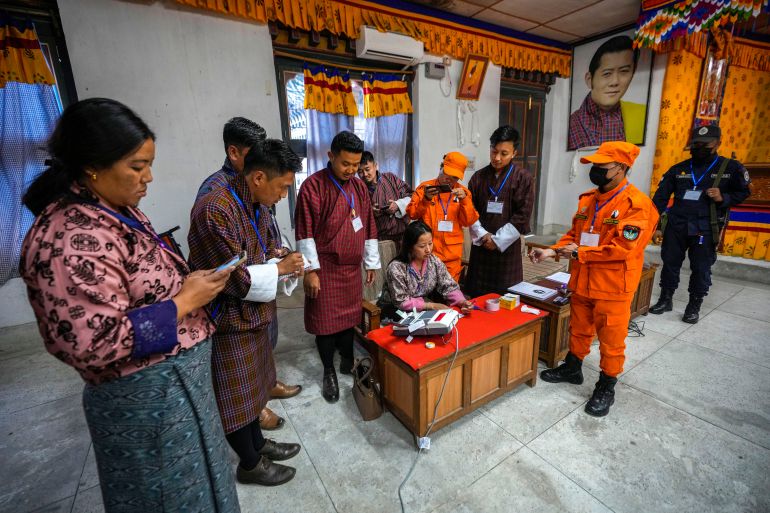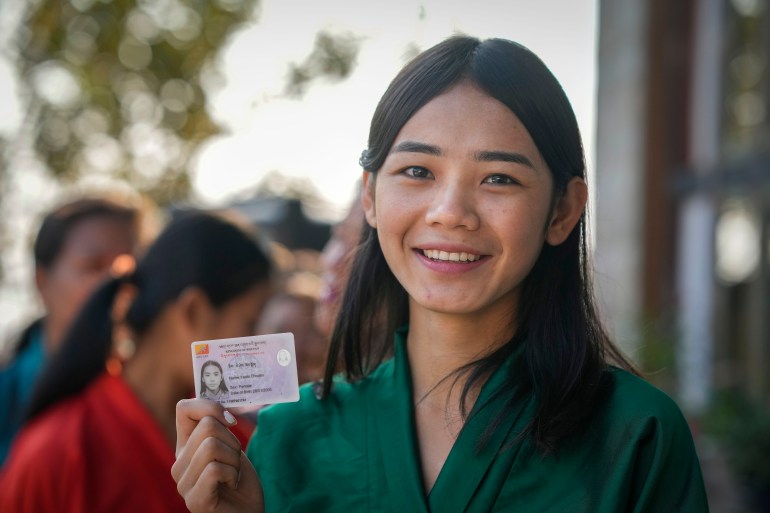Bhutan’s People’s Democratic Party wins election in Himalayan kingdom
Nearly half a million voters are eligible to choose 47 members of parliament or from among 94 candidates.

Former prime minister Tshering Tobgay’s People’s Democratic Party (PDP) won the most seats in Bhutan’s parliamentary election and will form the new government, according to media reports, after polls dominated by the economic crisis in the Himalayan nation.
The Bhutan Broadcasting Service reported on Tuesday that the PDP had won 30 of the 47 National Assembly seats to return to power, and the Bhutan Tendrel Party had secured 17.
Keep reading
list of 4 itemsWhat sets Bhutan’s first ever Oscar nominated film apart
Bhutan holds high-altitude race to highlight climate dangers
Photos: Mountain villages fight for future as melting glaciers spell floods
It was the country’s fourth general election since its transformation from a traditional monarchy to a parliamentary form of government in 2008.
The Election Commission of Bhutan is expected to make its final declaration on Wednesday.
The election campaigns focused on economic growth and opportunity, despite the country’s use of a “Gross National Happiness” index in place of gross domestic product (GDP).
Both parties in the election are committed to a constitutionally enshrined philosophy of a government that measures its success by the “happiness and wellbeing of the people”.
Tobgay, 58, is expected to become prime minister for the second time. He was the leader of the opposition in Bhutan’s first parliament when it was established in 2008, soon after the start of the reign of the present king.
He has sounded the alarm about Bhutan’s “unprecedented economic challenges and mass exodus”.
The PDP manifesto cited government statistics showing that one in every eight people were “struggling to meet their basic needs for food” and other necessities.
Approximately half a million voters selected the members of parliament from a pool of 94 candidates presented by the Bhutan Tendrel Party (BTP) and the PDP. A primary round of voting in November eliminated three other parties, including the governing centre-left Druk Nyamrup Tshogpa party.
“The most important thing the Bhutanese people need is economic growth and the growth of their own,” Karma, 49, a voter from Punakha, near Thimphu, told the Reuters news agency.
“Many people are unemployed and even those who have jobs get salary that is not enough to support the growth of their family.”

Young citizens searching for better financial and educational opportunities have left in record numbers since the last election, with Australia as their top destination.
About 15,000 Bhutanese were issued visas there in the 12 months before July 2022, according to a local news report – more than the preceding six years combined, and equal to almost 2 percent of the kingdom’s population.
Nestled between China and India, the majority-Buddhist nation ushered in democracy with its first free vote in 2008, two years after former king, Jigme Singye Wangchuck, abdicated in favour of his Oxford-educated son Jigme Khesar Namgyel Wangchuck.